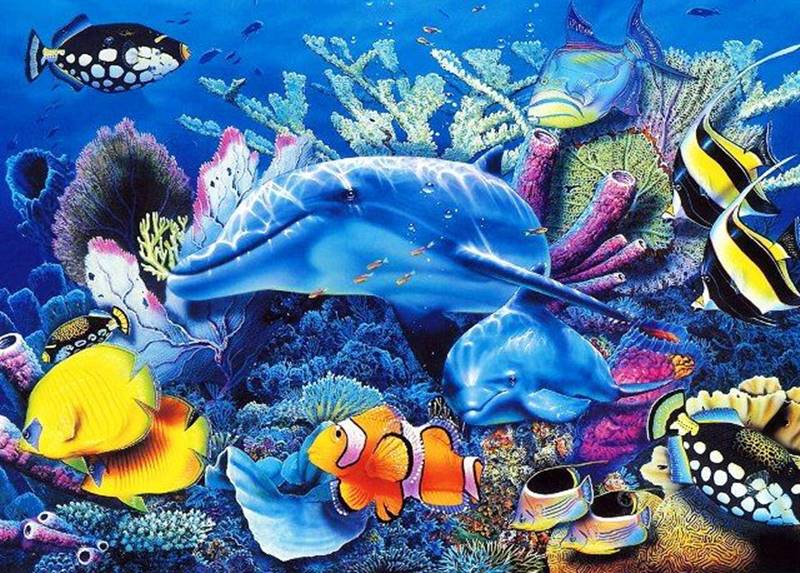Far from the influence of human activity, marine wilderness areas situated in remote locations across the world protect three times as many stocks as marine reserves, a study has found. These areas shelter many important and threatened species that require large spaces like sharks, groupers, jacks, and snappers.
The marine wildlife in these remote areas which hovers around reefs has been identified in a study conducted by Wildlife Conservation Society (WCS), a New York-based non-governmental organisation whose findings were revealed on November 20.
“Scientists examined coral reefs located 4-plus hours from people and 9-plus hours travel distances from urban markets. They found that the mean biomass of fish stocks in those remote wilderness areas was about one third higher than the values found in even the best-managed, oldest, and largest marine reserves located nearer shore to people,” the WCS statement mentioned.
Explained: Impact of climate change on countries that depend on fish for food and economy
Need to designate remote marine wilderness
Tim McClanahan, Senior Scientist for the Wildlife Conservation Society and the lead author of the study underlined the dire need to protect these areas.
“It scares us to think what is being lost when wilderness is reduced. The findings are a call to designate the last remaining marine wilderness as areas needing special status and protection – global ocean strongholds. To ensure that all coral reef fish species are protected from fishing and possible extinction, we need to focus on wilderness alongside 30 percent closures in nearshore areas,” McClanahan was quoted.
Also Read: Addressing the climate crisis through deep seabed mining is one step forward and three steps back
The study added that while the focus on 30 per cent coverage of marine reserves is ongoing, the need to also find and protect marine wilderness remains a high priority.
Two-way benefits for marine wildlife
Findings show that the two approaches complement each other well, as marine reserves protect more resilient species while wilderness protects space-requiring species.
“Previous studies have shown that many ecoregions lack wilderness, and this could result in the losses of important species with large space requirements. Protection of wilderness areas needs to be coupled with active conservation interventions to truly make an impact,” the study noted.
Also Read: Saving the planet while ignoring two thirds of it
Alan Friedlander from The National Geographic, who also played a role in the study, said, “Observing and surveying fishes for many years has made it clear to me that many, and particularly big fishes, require lots of space to survive and thrive. This collaboration and analyses with my colleagues have made it clear how this need for open marine wilderness is so pervasive”.
“This robust and extensive dataset has allowed us to confirm what many of us have observed for years, that remote marine wilderness are like time machines that allow us to observe the ocean of the past in order to protect the future,” he added.



















